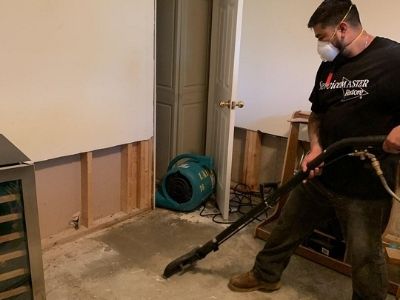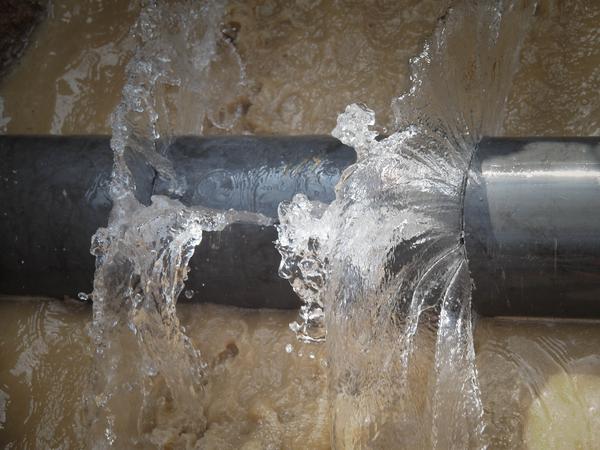Handling Flood Damage Due to a Leaking Water Pipe - Expert Solutions
Handling Flood Damage Due to a Leaking Water Pipe - Expert Solutions
Blog Article
We've encountered the article involving Water Damage: Tips On What To Do When Your House Is Flooded listed below on the net and accepted it made good sense to relate it with you on my blog.

What should you do if a pipes bursts in your residence, developing a mini-waterfall and swamping a location of your house? In this scenario, you should act fast. The longer you wait, the extra serious the water damage in your residential property. When an emergency such as this happens, clearheadedness is crucial. For these reasons, you require to learn what to in case of a burst pipes. Take a look at the following pointers below to assist you act fast since time is important.
Turn off the Main Waterline Shutoff
Look for the neighborhood shut-off valve to turn-off water in one certain location only. This will reduce off the water in your entire residence. Usually, the main valve is found outside the residence next to the water meter.
Call Water Damage Remediation Pros for Aid
After shutting the water resource, call the pros for assistance. With their expert aid, you can reduce worsening because water can permeate through your points resulting in warped baseboards, loose ceramic tiles, or damages framework.
File the Damage For Insurance coverage
As you are awaiting the pros to show up, record the damage caused by the wayward pipeline. Take photos and also videos of whatever. Do closeup shots of prized possessions. These things will function as proof for your homeowner's insurance coverage. Remaining positive with this enables you to sue for insurance coverage, which will certainly aid you and also your family members come back on your feet.
Recover Things That Can Be Conserved
Once you're done taking photos, read the items and also take out one of the most important ones from the stack. Dry them off as well as attempt to maintain as much as you can. Drag them away from moisture so they can start to dry.
Start the Drying Refine
Lastly, while waiting for the pros, you can start the drying procedure. Thankfully, water from your waterlines are clean so you don't need to fret about sewage system water. However, the flowing water may have disrupted the dirt as well as particles in your floorboards and also carpetings. Be prepared with gloves as you make use of containers to dump out the water. Blot out as much as you can with old towels. You can additionally switch on an electrical fan or open home windows to promote air flow. This will speed up drying out and hinder mold as well as mold development.
Specialists are the only ones qualified to repair the burs pipelines and also succeeding damages. And also remember, pipelines don't just unexpectedly ruptured. You will generally see red flags like gurgling paint, unusual sounds in the plumbing, stuffy smell, caving ceiling, peeling wallpaper, or water spots. Focus on these things, so you can nip any issues in the bud.
What should you do if a water pipeline ruptureds in your house, developing a mini-waterfall and swamping a location of your home? For these factors, you need to learn what to in case of a ruptured water pipeline. After closing the water resource, call the pros for assistance. With their specialist assistance, you can alleviate exacerbation since water can leak with your things resulting in deformed baseboards, loose tiles, or damages framework. The good news is, water from your waterlines are clean so you do not have to stress about sewage system water.
Tips for preventing water damage at your business
Insulate exposed pipes
When temperatures drop during the winter, especially at night, exposed pipes are vulnerable to freezing. Plummeting temperatures or cold drafts can freeze water inside a poorly insulated pipe, creating pressure and ultimately causing the pipe to burst. A broken pipe can lead to costly flooding or even structural damage.
The best way to prevent frozen pipes is to ensure they re insulated. Most hardware stores carry pipe insulation. The more insulation you use, the better protected your pipes will be.
Keep heat at sufficient levels
To prevent pipes from freezing, you ll want to keep an eye on your business s thermostat. Make sure the thermostat is never set lower than 50 degrees even on weekends or when the building is vacant. Avoid significant changes between nighttime and daytime temperatures, which increases the risk of your pipes freezing. In addition, be sure to regularly replace batteries in thermostats to ensure they re operating correctly.
Clear your roof
Snow and ice accumulation on your business s roof can result in weakened roofing materials and create ice dams, which prevent melted ice and snow from properly draining. Regularly remove snow and ice from your business s roof to prevent structural damage. Know your roof s load-bearing capacity, and periodically check to ensure that snow and ice aren t accumulating beyond its weight limits.
Seal cracks and gaps
Seal any cracks, holes, or other gaps in your building s exterior and foundation to ensure that cold air doesn t penetrate your building and warm air doesn t escape. Caulk, weather stripping, and other sealants can be used to make your building more energy efficient and reduce the risk of frozen pipes.
Keep track of valuable items
Knowing the value of items in your building will help you replace them in the event they re damaged by a water-related incident. If there s a risk of flooding, move valuable items from the floor of your business as long as you don t put yourself at risk. If flooding does occur, you ll need to ensure that the building has been safely evacuated and that all employees and customers are able to get to higher ground as soon as possible.
Protect your business with insurance
It s important to have adequate insurance in place in the event that you do experience water or freezing damage. When it comes to small business insurance, the details of your coverage matter.
Many commercial property insurance policies will cover the cost of pipe breakage but will exclude damage from flooding, groundwater, and backed-up sewer lines. Your insurer will likely look at the source of the water damage when you make a claim and decide whether you re covered. You can ask your insurer to add a rider, or an endorsement, to your policy to extend coverage to hazards that are excluded from your policy to ensure your business is protected.
https://www.insureon.com/blog/tips-for-preventing-water-damage-at-your-business

I was shown that article on Water Damage Restoration Do s And Don t from an associate on a different site. Do you know about another individual who is very much interested in the niche? Feel free to share it. Thanks a bunch for your time. Come back soon.
Click Here Report this page